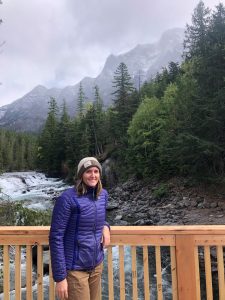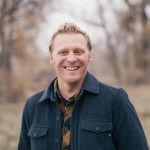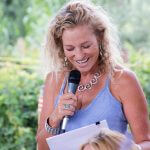Colleen McGuire
Colleen McGuire (she/her) was born in Pennsylvania, on Lenapehoking (Lenni-Lenape) lands, where she still lives today.
Colleen joined River Network in 2020. As Healthy Rivers Program Manager, she works along side local partners to advocate for a fully fishable, swimmable Delaware River using the tools of the Clean Water Act.
Colleen earned her Bachelor of Science in Marine Science from Coastal Carolina University and her Masters of Science in Ecological Restoration from University of Florida. Prior to joining River Network, she worked for National Fish and Wildlife Foundation in both Washington, D.C. and later Portland, OR, assisting local organizations in finding solutions to water quantity limitations and supporting riparian restoration projects to provide critical habitat for endangered pacific salmon. Outside of work, you can find Colleen exploring new hiking trails, paddling with her partner and pup by the Jersey Shore, traveling to the next National Park on her list, and spending time with her family watching Eagles games every Sunday in the fall.

Exploring Glacier National Park.
What called you to work in water?
From a very young age (and with many family trips to the Jersey Shore), I was drawn to the wonder and mystery of the ocean. I dove into marine science, studying by the coast of South Carolina where I learned not only about biology, chemistry and oceanography, but also about conservation and climate change. I found myself spending more time exploring and observing nature and reflecting on my individual impact, and left school with a strong desire to help protect our rivers, forests, and oceans. Water has always been a place of calm and escape for me, and I am so lucky that I get to work around it and for it every day!
Why is equity, diversity, and inclusion (EDI) important in your work?
Everyone should have access to safe and healthy water – whether it be clean drinking water or healthy water quality to swim on hot summer days. In my work in the Delaware, we help to highlight the inequities in water health and recognize that access to water recreation is not equal up and down the river. Centering EDI is critical in our advocacy, ensuring that the most polluted sections of the river and communities do not continue to be ignored and that local voices and needs are heard.
How do you think the conservation community can make the biggest impact?
Partnership and collaboration! One of the reasons I value River Network so much is our commitment to building a NETWORK! It is always so inspiring to witness, or be part of, a group of organizations working together, sharing ideas, and building on one another’s strengths to maximize the impact.








